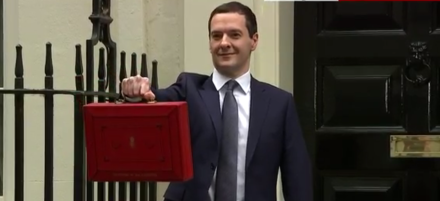
With the EU referendum dominating the political landscape next week’s Budget looks set to have a lower profile than in recent times. Despite this it is still a critical opportunity for the Government to take the urgent action required to build an economy which creates opportunities and rewards for the many not the few.
The case for change is well rehearsed – stagnating wages for all but a very few at the top; labour market casualisation and the deterioration of career progression opportunities; the dominance of a PLC business model obsessed with quarterly earnings reports; the continuing struggle faced by small and medium sized companies to gain the investment they need to survive and thrive; the so-called ‘productivity puzzle’ which sees Britain languishing towards the bottom of the league tables. These are huge structural challenges at the heart of the British economy which require real commitment and long-term action to correct. The Chancellor should make a start next week by taking four actions which would be a step in the right direction.
Firstly, the Chancellor should commit Government time to enact the ‘Profit Sharing and Company Governance (Employees Participation) Bill’. This private members bill promoted by Co-operative MP Gareth Thomas would require larger companies to share a proportion of their profits with their employees and reserve a seat on company boards for a representative from the workforce. By giving the very people with a stake in its future success, a stake in the business in which they work, you incentivise staff to work towards raising company performance and reward them fairly when they are successful.
Secondly, the Chancellor should enact the recommendation of the Nuttall Review which made the case for a legal right to request employee ownership when a business changes hands. Companies owned by their employees are more productive, more innovative and more resilient than PLCs. Productivity is increasing 4.5% year on year in the employee owned sector. In the economy as a whole productivity growth is flat. An economy with a larger employee owned sector would be a more productive economy.
Thirdly, the Chancellor should take the concrete steps necessary to create a diverse financial services industry capable of supporting families and SMEs; a key part of securing economic growth and prosperity in every part of the country.
He should place a legal duty on the FCA to ensure and promote a diversity within the system – both a competitive market with a wider range of players but also an industry with an ecology of legal models including a greater role for building societies, credit unions and CDFIs.
The Chancellor should rethink the new banking levy which places an undue financial burden on building societies, limiting their ability to lend and punishing them for the financial crisis they did not create. In addition, the Government should go further in improving banking transparency and ensuring that banks have a duty to serve all communities, as they do under the Community Reinvestment Act in the United States.
Finally, the Government should support new mechanisms for successful businesses to get the investment they need. Government should legislate to enable the creation of Mutual Guarantee Societies. These societies, which exist in many other jurisdictions, enable small businesses to come together to secure investment which would otherwise not be available to them. Across Europe 8% of all SMEs are members of such bodies, driving growth in the small and medium size business sector. And extend legislation to enable co-operatives to issue redeemable shares, levelling the playing field with PLCs.
You can’t create a new economy in a day but the Chancellor could use next Wednesday to make a start.
Claire McCarthy is the General Secretary of the Co-operative Party, Labour’s sister party




More from LabourList
‘Tackling poverty should be the legacy of Keir Starmer’s government’
‘The High Court judgment brings more uncertainty for the trans community’
‘There are good and bad businesses. Labour needs to be able to explain the difference’